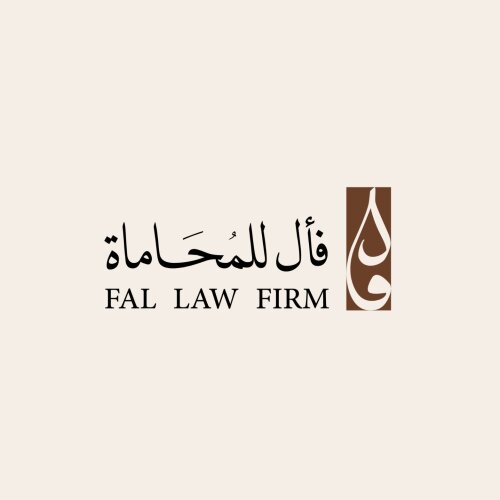Best Commercial Real Estate Lawyers in Riyadh
Share your needs with us, get contacted by law firms.
Free. Takes 2 min.
Free Guide to Hiring a Real Estate Lawyer
List of the best lawyers in Riyadh, Saudi Arabia

About Commercial Real Estate Law in Riyadh, Saudi Arabia
Commercial real estate law in Riyadh, Saudi Arabia pertains to all legal matters related to the purchase, sale, lease, and use of commercial property. This includes office buildings, retail centers, warehouses, and manufacturing sites. Commercial real estate law involves a complex set of regulations, codes, and statutes that can vary based on the municipality and the specific property involved. The Saudi government provides a favorable environment for the real estate industry with its more liberalized property ownership laws and its large-scale urban development projects, which have brought about dynamic changes in the commercial real estate landscape.
Why You May Need a Lawyer
Engaging a lawyer for commercial real estate transactions is advisable because of the complexity of the deals and the associated risks. Most people require a lawyer for preparing agreements of purchase and sale, reviewing and negotiating lease documents, conducting due diligence including zoning compliances and title issues, and closing property transactions. Legal advice can also be necessary when dealing with disputes over property use, lease terms, or property value assessments.
Local Laws Overview
In Saudi Arabia, commercial real estate transactions are framed by Saudi Arabian Law and governed by several bodies including the Ministry of Commerce and Investment, Ministry of Justice, and the Saudi Arabian General Investment Authority. The local laws regulate property ownership, leasing terms, and off-plan sales. It’s crucial to understand these laws for smooth transactions. For instance, foreign entities can also own real estates in Saudi Arabia, but there are certain restrictions and approval requirements to navigate.
Frequently Asked Questions
Can foreign investors own a commercial real estate property in Riyadh?
Yes, foreign investors can own commercial real estate properties in Riyadh, with certain restrictions and prior approvals required from competent authorities.
What is the role of a notary in Riyadh, Saudi Arabia?
In Riyadh, any property transaction has to be validated and attested in front of a licensed notary public.
Are there property taxes involved in commercial real estate in Riyadh?
While there is no traditional property tax in Saudi Arabia, a tax referred to as the "White Land Tax" applies on vacant lands within urban boundaries.
Are there restrictions on the leasing of commercial properties in Riyadh?
Leasing of commercial properties comes under the purview of the Saudi Leasing Law and the Commercial Papers Law. Therefore, leasing contracts must meet specific regulatory requirements to be valid.
Is it mandatory to register commercial properties in Saudi Arabia?
Yes, all commercial properties have to be registered in Saudi Arabia with the Ministry of Justice.
Additional Resources
For further help and information, contact the Ministry of Commerce and Investment, the Ministry of Justice, the Ministry of Municipal and Rural Affairs, or the Saudi Arabian General Investment Authority. These bodies regulate and administer the laws relating to commercial real estate in Saudi Arabia and provide advice and information to property owners and investors.
Next Steps
If you need legal assistance in commercial real estate in Riyadh, it is best to contact a local attorney who specializes in commercial real estate matters. They can provide advice based on the specific circumstances, draft and review documents, represent you in negotiations, and ensure all procedures are in compliance with local laws and regulations.
Lawzana helps you find the best lawyers and law firms in Riyadh through a curated and pre-screened list of qualified legal professionals. Our platform offers rankings and detailed profiles of attorneys and law firms, allowing you to compare based on practice areas, including Commercial Real Estate, experience, and client feedback.
Each profile includes a description of the firm's areas of practice, client reviews, team members and partners, year of establishment, spoken languages, office locations, contact information, social media presence, and any published articles or resources. Most firms on our platform speak English and are experienced in both local and international legal matters.
Get a quote from top-rated law firms in Riyadh, Saudi Arabia — quickly, securely, and without unnecessary hassle.
Disclaimer:
The information provided on this page is for general informational purposes only and does not constitute legal advice. While we strive to ensure the accuracy and relevance of the content, legal information may change over time, and interpretations of the law can vary. You should always consult with a qualified legal professional for advice specific to your situation.
We disclaim all liability for actions taken or not taken based on the content of this page. If you believe any information is incorrect or outdated, please contact us, and we will review and update it where appropriate.
















